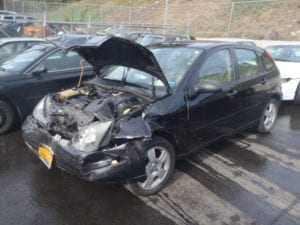Confidential Settlement Pawtucket, RI

Our Pawtucket, RI car accident client was struck head-on by a drunk driver resulting in corrective eye surgery and permanent impairment.
Our Client Required Corrective Eye Surgery After Air Bag Deployment
In fall 2012, a driver sped down an urban street in Pawtucket, Rhode Island, after consuming several alcoholic drinks. Our client was simply driving straight in the opposite direction when the intoxicated driver swerved into his lane, causing a high speed head-on collision.
Our client’s vehicle was struck with such force that it was propelled backward and the airbags deployed. Responding police officers observed that the at-fault driver’s speech was slurred, his eyes were watery and bloodshot, and his breath reeked of alcohol. After failing field sobriety tests, the at-fault driver blew a high BAC.
Rescue transported our client to Rhode Island Hospital for treatment of wrist, back, and, most notably, right eye injuries, including the appearance of “flashers” and “floaters.” After evaluation by an ophthalmologist, it was determined that, as a result of the collision, our client had suffered blunt trauma to the eye indicated by retinal detachment, corneal damage, decentration of his ocular lens, and severe inflammation of the membranes.
Our client underwent surgery in an attempt to repair the damage. Unfortunately, this surgery was unable to correct the loss of our client’s visual acuity that had greatly diminished from 20/125 pre-collision to 20/400. His ophthalmologist has indicated that this will be a permanent impairment, and that a future corneal transplant surgery will likely be necessary.
Our RI auto accident attorneys proceeded to obtain the maximum bodily injury insurance policy proceeds from the Rhode Island drunk driver’s insurance company. However, our client’s medical expenses alone (including any future surgeries) greatly exceeded this amount. Our client’s vehicle was insured with underinsured motorist (UIM) coverage. Attorney Mike Bottaro successfully contended that this coverage applied to this loss and that the insurer was legally obligated to tender the full UIM maximum insurance policy limits.

